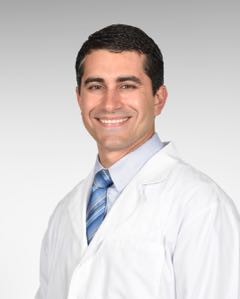View All Articles
Don’t Make These 6 Mistakes After Orthopedic Surgery
Preparing for orthopedic surgery can be overwhelming as you learn about the procedure and what to expect. But what you do after you get home is just as important and can have a big effect on how quickly you recover.
Here are six mistakes you shouldn’t make after orthopedic surgery:
- Not doing physical therapy. Whether at home or in the office, if you don’t do the recommended stretches and exercises, there is an increased risk of joint stiffness and a slower recovery. You may be able to catch up over time to other patients who followed the recommended physical therapy program, but you might face some permanent limitations if you fail to do appropriate physical therapy and exercises after surgery. Ideally, you will be able to do a combination of in-office or at-home physical therapy paired with a home exercise program.
- Trying to recover alone. If you don’t have family nearby, recovery can be tough. Complex surgeries, like joint reconstruction and fracture repair, are challenging to recover from even with support. Before you have surgery, try to line up some support for when you go home – even if it’s just a friend or neighbor checking on you every day. Working with your healthcare team, you can minimize any potential problems as you recover from your surgery.
- Eating unhealthy food. After the stress of surgery, you might want to treat yourself with cake, candy or other high-sugar foods. Resist that temptation. If you have diabetes, eating too many sugar-laden goodies can severely raise your blood glucose level. Research shows that blood sugar, when elevated after surgery, is associated with wound problems and can raise the risk of infection. This could be an issue even if you don’t have diabetes. Instead, eat a balanced diet that focuses on whole foods with high protein and lots of fiber. Protein helps with the healing process for soft tissues and bones, and fiber helps prevent constipation. Add in healthy fats, like extra virgin olive oil, avocado, many nuts and fish, such as salmon. Remember the adage, “food is medicine.” If we aren’t careful, it can be a poison, too!
- Not knowing enough about the surgery. You don’t need to know every nuance and detail of your surgery, but knowing the type of procedure you had, what to expect during the healing process and how to rehabilitate is vital to your post-surgery success. The easiest way to learn this is to ask your surgeon. Many surgeons have educational tools to help you understand the basic framework of your surgery and recovery process.
- Not understanding how medications interact. If you take medications for multiple conditions, it’s important to understand how these drugs interact – before and after surgery. Some medications (including blood thinners such as apixaban, coumadin and enoxaparin) must be stopped before the surgery to avoid complications, such as excessive bleeding. Complex medications – such as insulin – may be adjusted rather than stopped. Talk to your doctor before making any changes. You should consult with your doctor about any new drugs prescribed for after surgery and how they might interact with medications you’re already taking.
- Skipping follow-up appointments. You may think everything is fine after your surgery, but even if you feel great, you should still see your doctor for any follow-up appointments. Your doctor will check the surgery site and make sure you are healing appropriately.
Choose to Stay in Touch
Sign up to receive the latest health news and trends, wellness & prevention tips, and much more from Orlando Health.
Sign Up










